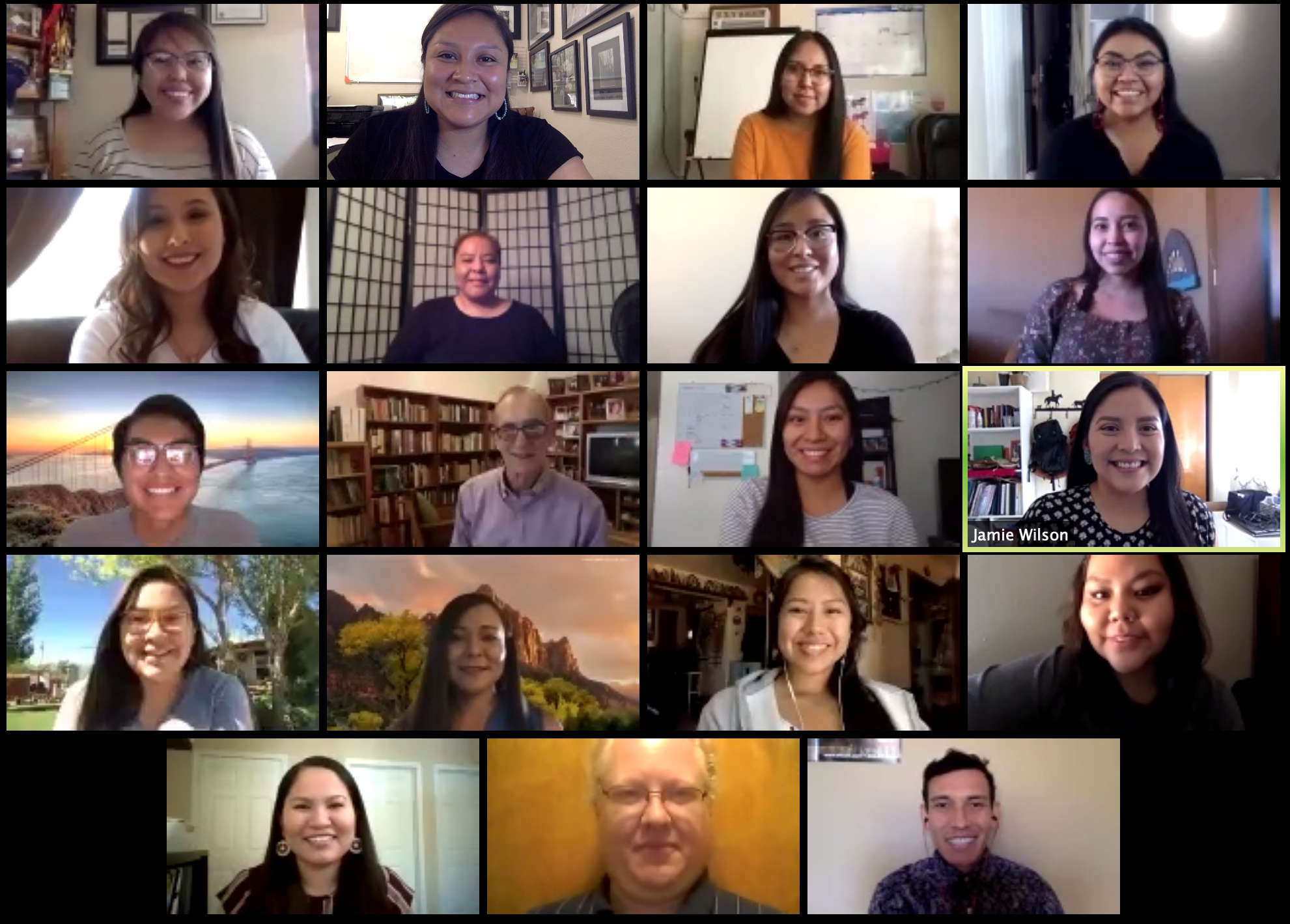
PRESS RELEASE
August 3, 2020
Diné College Students Present COVID-19 Summer Research Findings
TSAILE, ARIZ. — Rapidly transitioning from an in-person program to one entirely online was a challenge, but public health students with Diné College’s Summer Research Enhancement Program (SREP) delivered outstanding presentations, the professor who oversees SREP said.
The presentations were part of a public health course requirement and carried coronavirus pandemic (COVID-19) themes. Specifically, the student presentations covered the impact of COVID-19 on the mental health of caregivers on the Navajo Nation, the impact of COVID-19 policies on mental health within the Navajo Nation and the impact of COVID-19 on Diné College employees.
“All of the staff felt that the students did an outstanding job presenting their work in a professional way in the online format,” Mark Bauer, Ph.D., the Diné College science professor who is in charge of the annual program, said. “This historic pandemic has changed the student’s lives in so many ways,” Bauer said. “It has affected the way they are attending school and how they interact with their families and relatives.”
Bauer said six of the eight student presenters were Diné College undergraduate public health majors. Of the other students, Bauer said one was from Pima Community College in Tucson, Ariz., and the other from Fort Lewis College in Durango, Colo. The latter two are undergraduate public health majors, he said.
Vanessa Begaye is a senior at Diné College and from Lukachukai, Ariz. She gave a presentation on the impact of COVID-19 on the mental health of Navajo caregivers.
“In my research there was no significant difference between essential and non-essential caregivers,” Begaye said. Begaye said she wants to study public health in graduate school. “Both worry about bringing the virus home to their families. Since my study was conducted on social media, I believe if there was a larger sample size our data would have been significantly different.”
Bauer said the goal in highlighting COVID-19 this year was for the students to study and understand how the disease impacts their communities on the Navajo Nation — which has a continuously high rate of COVID-19. He said highlighting the virus was a way for the students to gain public health tools and skills so they can understand COVID-19, and not be overcome by the obstacles presented by the pandemic.
Bauer said the 2020 SREP was smaller than the usual 12-15 students, saying the decrease was primarily due to social distancing restrictions and the uncertainty about the program taking place.
SREP engages students in three weeks of classroom instruction, then coordinates internships with different agencies and mentors around the Navajo Nation. The internships give students practical experience in data collection and analysis in a health-related program in a community setting. In the final week, students return to the Tsaile campus and give presentations to departmental faculty, internship mentors and peers.
Besides Vanessa Begay, the other students who participated in the 2020 SREP were: Kyann Dedman-Cisco, Amber Kee, Faye Sorrell, Wacey Begay, Karianne Jones, Krishanya Smith and Shelby Kinlichee.
.
Tuba City Regional Health Care Corporation (Navajo Nation)
HHS Small Ambulatory Program Awards $55 Million to 15 Tribes and Tribal Organizations (Indian Health Service)
Indian Health Service Announces New Deputy Director for Quality Health Care and Enterprise Risk Management (Indian Health Service)
Federal Emergency Management Agency (FEMA)
White House Office of Management and Budget (Joe Biden Administration)
Tuba City Regional Health Care Corporation (Arizona, Navajo Nation)
Oklahoma City Indian Clinic (OKCIC)
Indian Health Service (Department of Health and Human Services)
Navajo Nation Town Hall (Arizona, New Mexico, Utah)
Navajo Nation (Arizona, New Mexico, Utah)
Tribal organizations statement on advance appropriations for Indian Health Service
Indian Health Service Statement on Advance Appropriations (Department of Health and Human Services)
Indian Health Service (Department of Health and Human Services)
Indian Health Service (Department of Health and Human Services)
